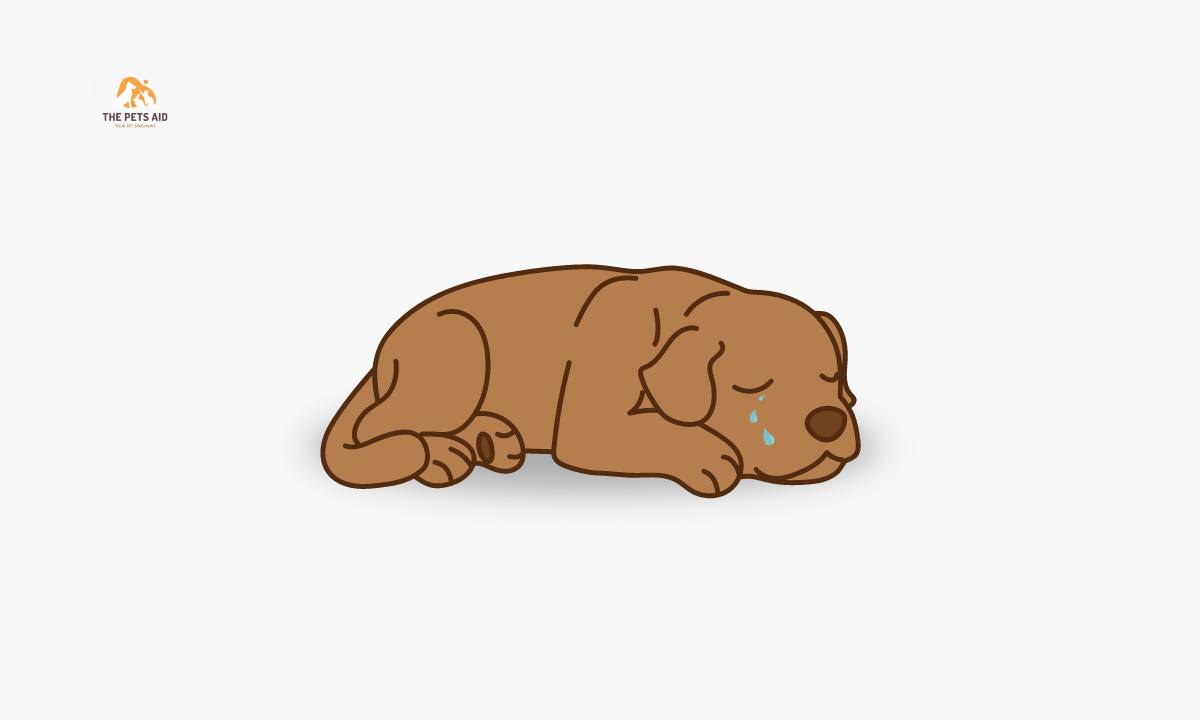As a child, I vividly remember waking up in the middle of the night to the heartbreaking sound of my dog crying in her sleep.
At the time, my young mind believed she must be having sad dreams, but as an adult, I’ve come to realize that there are various reasons why dogs may vocalize during their slumber.

Highlights:
- Dogs may cry in their sleep as they dream about past experiences, reliving memories that evoke emotions.
- Crying during Rapid Eye Movement (REM) sleep could indicate nightmares; consult a vet if your dog appears distressed.
- Ensure your dog gets enough exercise during the day to prevent restlessness at night, promoting a more peaceful sleep.
- Persistent crying may signal an underlying medical condition; consult your vet if you notice changes in behavior or increased distress.
- Pay attention to your dog’s behaviors and seek professional advice when needed for a happy and healthy canine companion.
Why Do Dogs Cry in Their Sleep?
Dogs may cry in their sleep for various reasons, including reliving past experiences, having nightmares, lack of exercise, or underlying medical conditions. If your dog exhibits persistent distress, consult a veterinarian to ensure their well-being.

In this article, we’ll explore the phenomenon of dogs crying in their sleep and the four main reasons behind this behavior.
Reliving Past Experiences
One common reason why dogs cry in their sleep is that they may be dreaming about something that happened to them in the past. Just like humans, dogs can experience vivid dreams that trigger emotional responses.
When your dog cries out or moves around during sleep, it could indicate that they are reliving a specific memory. You might even observe their legs moving as if they were running in their dreams.
Nightmares and REM Sleep
Another possibility is that your dog is having a nightmare. During the Rapid Eye Movement (REM) stage of sleep, dogs experience intense dreaming.
While they may cry out or whimper during this phase, they typically don’t move around much. If your dog seems distressed during sleep or is having trouble sleeping, it’s advisable to consult with your veterinarian for guidance.
Lack of Exercise and Restlessness
Much like humans, dogs need regular physical activity to expend energy and promote a good night’s sleep. If your dog needs to get more exercise during the day, they may become restless at night.
Taking your furry friend for a walk before bedtime can help tire them out, allowing for a more comfortable and peaceful sleep.
Underlying Medical Conditions
Persistent crying in sleep or increased restlessness may indicate an underlying medical condition causing pain or discomfort.
Pay attention to any changes in your dog’s behavior and consult your veterinarian if you notice them crying more frequently or exhibiting signs of distress at night.
A thorough veterinary examination can help identify and address any potential health issues.
Conclusion
Understanding why dogs cry in their sleep involves considering various factors, from reliving past experiences to potential health concerns.
As responsible pet owners, we must pay attention to our furry friends’ behaviors and seek professional advice when needed.
If your dog’s nighttime crying becomes regular, consulting with your veterinarian can help ensure your beloved companion receives the care and attention they deserve.
More Resources:
- Best Dog Breeds for Senior Citizens
- Should an 80-year Old Get a Dog?
- Is It Worth Getting a Dog in Your 20s?
